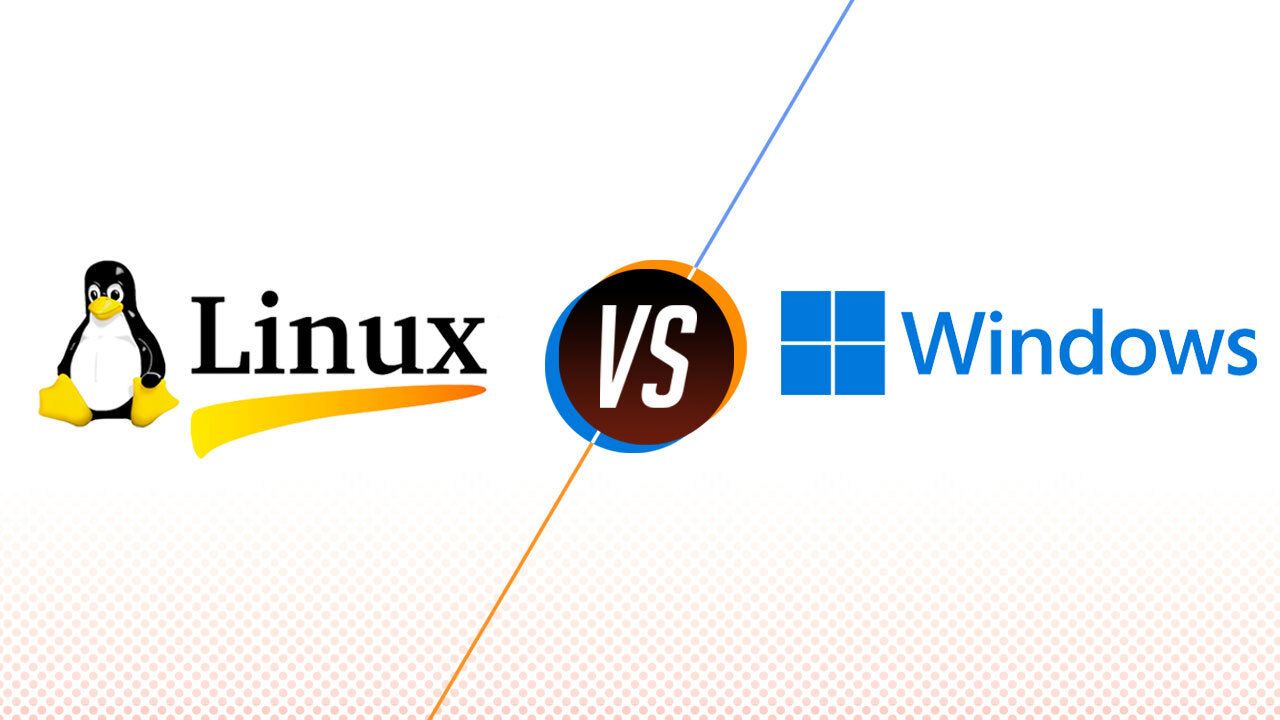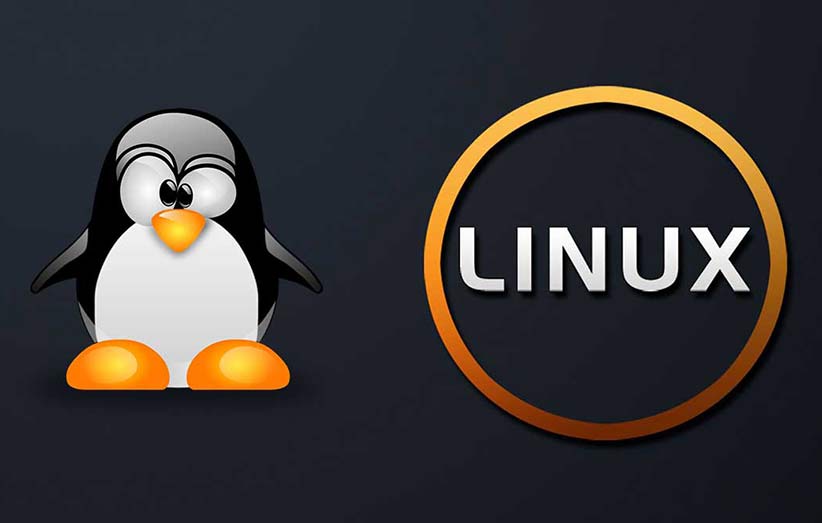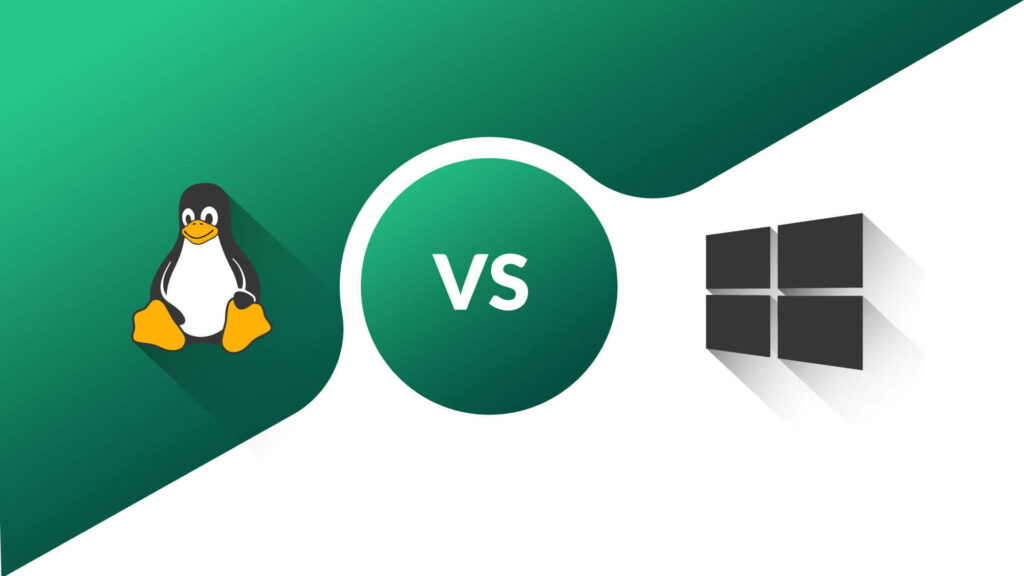What is the Difference Between Windows and Linux server?
What is the difference between Windows and Linux servers?
There are many differences between Windows and Linux servers. One of the main differences is the operating system used. Windows is developed by Microsoft, while Linux is developed by the open-source community. This difference impacts how the systems function and are managed.
Another difference is the user interface environment. Windows has a graphical user interface that is easy for many users to use. While Linux often has no GUI or fewer options, it is more suitable for system administrators and advanced users.
Also, software licensing is an important difference. Many versions of Linux are released under a free and open-source software license, while Windows is a paid software that requires a license to be used.
Finally, the two operating systems also differ in terms of flexibility and adjustable settings. Linux usually offers more options for advanced settings and flexibility, while Windows is generally more suitable for beginners and intermediate users.
On the virtual server, you can run the operating system you want and need and have direct access to it. In accordance with your needs, you have the right to choose between Windows and Linux operating systems.
Since you are reading this article, you probably have basic information about the virtual server and its features. Now, you are at the stage of choosing the best operating system for your needs, which will be an important and effective decision.
So stay with Shopping Server to learn more about the difference between Windows and Linux operating systems. In any case, the decision will be yours alone, as it depends not only on the price and specifications but also on the requirements, scripts, and databases you want to have on your website.

Difference between Linux virtual server and Windows virtual server
Both operating systems have different advantages and disadvantages. Linux is an open source operating system and is available for free, and Windows is also run by Microsoft and has its advantages.
In the following, we examine several different parameters in Windows and Linux operating systems:
Performance
In the modern digital world, every internet user visits websites that load faster and have a secure and fast website experience. So, choose a virtual operating system that gives you the best performance based on your specific needs:
Linux: The Linux operating system is designed for use with secure remote login (SSH). All management of the virtual server is done using the command line. Compared to Windows VPS, Linux requires fewer resources. Even if the website load is heavy, you don’t need to request a regular reboot.
Windows: One of the major problems we see with Windows VPS is that it has to be restarted after every small update, driver, or software because it uses a graphical user interface (GUI). If not optimized properly, this can require more resources.
Access to the server
In order to have better control over the website and its different parts, we need to provide you with sufficient access to the server:
Linux: File Transfer Protocol (FTP) can be used on Linux and Windows virtual servers, but if you’re looking for services like SSH or telnet, this is only possible with Linux. With most Linux-based VPS services, you will have full access to the server.
Windows: As we said, FTP access is available, but you won’t have SSH access.
But remote desktop access is also an advantage that Windows has over Linux. This makes server management simpler and easier than Linux.
Control panel
The control panel allows you to customize and manage various settings and features of your website. Some popular control panels include cPanel, DirectAdmin, Plesk, Parallels, etc. Windows and Linux VPS servers use different control panels:

User interface
Windows Server uses a graphical user interface that is more familiar to users. Linux Servers usually use a command-line user interface, which requires more technical knowledge. However, a GUI is also available for Linux servers.
Ease of use
Generally, it depends on your technical knowledge. However, Windows virtual server hosting seems much more user-friendly:
Linux: Although most website owners with strong technical knowledge argue that Linux is easier to use because it offers cPanel management tools, it does not seem to be ideal for newbies.
Windows: Since Windows VPS uses a graphical user interface (GUI), it is easier for newbies to use than Linux operating systems.
Scalability
The scalability feature allows you to handle the workload without switching to a premium plan. You can easily handle sudden workloads without performance degradation:
Linux: Most Linux servers offer 100% guaranteed uptime. Additionally, a Linux VPS is the best option if you have applications that run on PERL, Python, or a similar platform.
Windows: Although not all Windows servers come with a 100% uptime guarantee, if you work with ASP.net, PHP, etc., Windows should be a good choice. If your business relies heavily on Microsoft software, a Windows VPS can be a great host. Websites built with the ASP.NET framework require a Windows VPS for optimal performance.
Security
In the past few years, we have seen numerous cyber attacks. Today, DDoS attacks, data breaches, malware, and file deletion are some of the common threats to a website. Therefore, it is necessary to choose the type of hosting that offers you better protection against such threats:
Linux: Linux is a Unix-based operating system that provides better security against viruses, environments, spyware, malware, etc., because editing privileges are restricted to administrators only.
Windows: On the other hand, Windows requires extensive security software to combat SQL and script attacks, but if you have the right settings, Windows Server is also considered secure. In Windows, users can hide a file from the administrator’s view.
In general, Linux is more secure than Windows.
Windows virtual server applications
- Email servers
- Web hosting
- Backup
- Application testing
- Create a VPN
- Building an online server for the game
- Download large files
In general, Windows virtual servers are used in many industries and businesses to provide various services and manage Windows virtual servers for a wide range of applications and uses.
Linux virtual server applications
- Build a game server
- Earn money with digital currency
- Ability to use VoIP
- Backup
- Web hosting
- Hosting network services
- Hosting content management systems (CMS)
- Checking codes in programming
These are just a few of the many uses of Linux virtual servers. The main advantages of using Linux virtual servers are easier and better management of hardware resources, high security, scalability, fast recovery, and lower costs than physical servers.
Conclusion
The choice of operating system to host a virtual server affects management, workflow, and associated costs. Each operating system has advantages and disadvantages that depend on your virtual server needs. When choosing the best server operating system, choose wisely between Windows and Linux. If your applications run on PERL, Python, or Ruby, a Linux virtual server should be preferred.
If your developers work on ASP.net or PHP, Windows is the best solution. Windows Virtual Server is suitable between Windows and Linux for users who need independence and control over the server. It all depends on preference, as both platforms are powerful and depend on individual needs, preferred software environment, and available budget.

